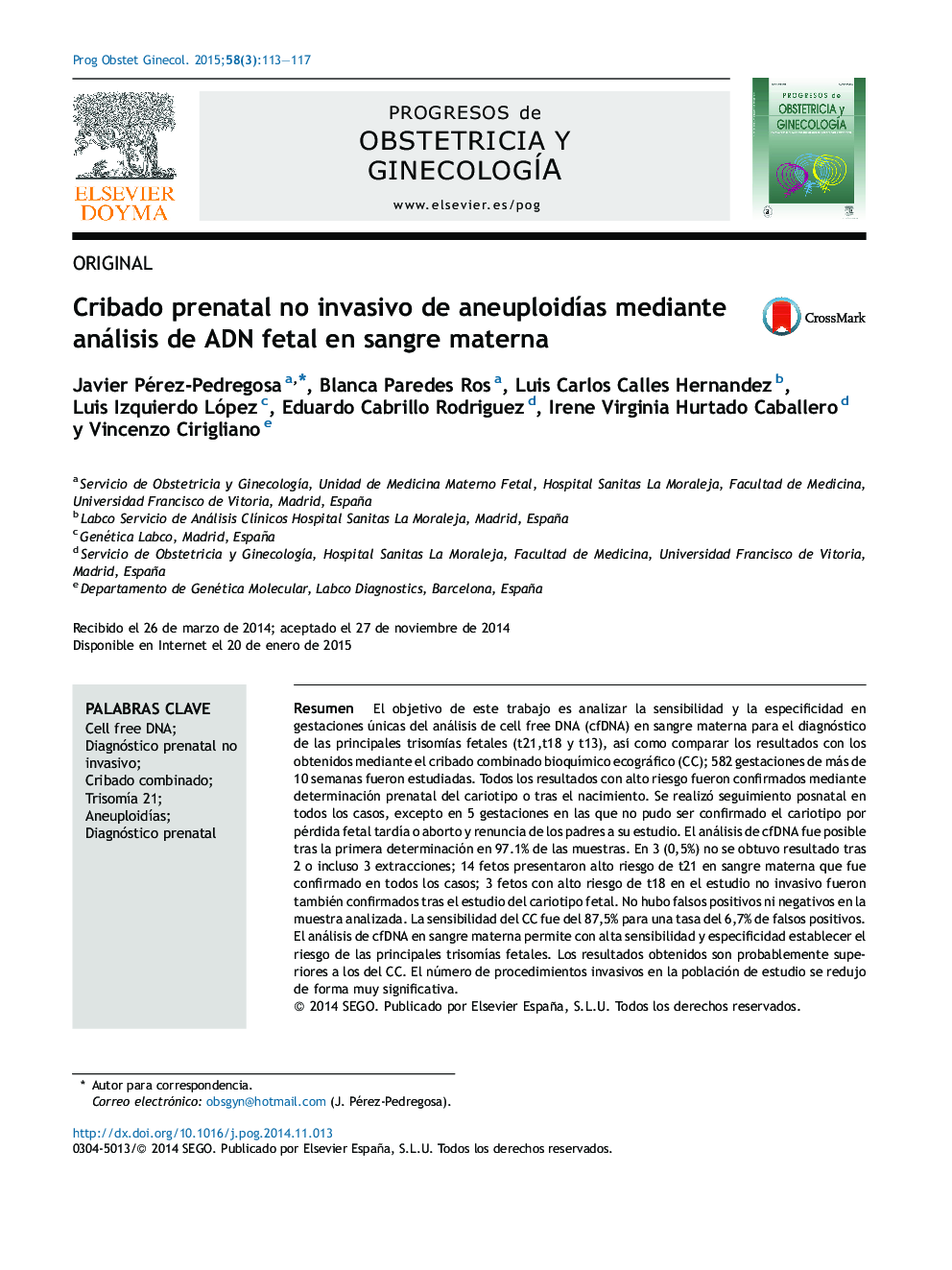| Article ID | Journal | Published Year | Pages | File Type |
|---|---|---|---|---|
| 3968537 | Progresos de Obstetricia y Ginecología | 2015 | 5 Pages |
Abstract
The aim of this study was to assess the sensitivity and specificity of cell-free (cfDNA) screening for diagnosis of the main fetal trisomies (t21,t18 y t13) and to compare its efficiency with that of first-trimester combined screening (FTS). A total of 582 samples were analyzed from singleton pregnancies above 10 weeks of gestation. All abnormal results were confirmed either with a prenatal invasive procedure or by neonatal karyotyping. Postnatal follow-up was also carried out in all but 5 low-risk pregnancies in which the karyotype could not be confirmed due to late fetal loss or miscarriage or parental refusal. cfDNA determination provided a risk score at the first attempt in 97.1% of the samples. Only 3 cases failed after 2 or 3 redraws (0.5%). High-risk results were provided by the Harmony test in 14 cases for t21 and in 3 for t18. No false positive results were observed. No false negative results were obtained in any of the 557 cases with a result of low-risk and postnatal follow-up. The sensitivity of FTS was 87.5%, with a false positive rate of 6.7%. cfDNA analysis in maternal blood has high sensitivity and specificity in establishing the risk of the main fetal trisomies. The results are probably superior to those obtained with FTS. The number of invasive procedures in the study population was significantly reduced.
Keywords
Related Topics
Health Sciences
Medicine and Dentistry
Obstetrics, Gynecology and Women's Health
Authors
Javier Pérez-Pedregosa, Blanca Paredes Ros, Luis Carlos Calles Hernandez, Luis Izquierdo López, Eduardo Cabrillo Rodriguez, Irene Virginia Hurtado Caballero, Vincenzo Cirigliano,
